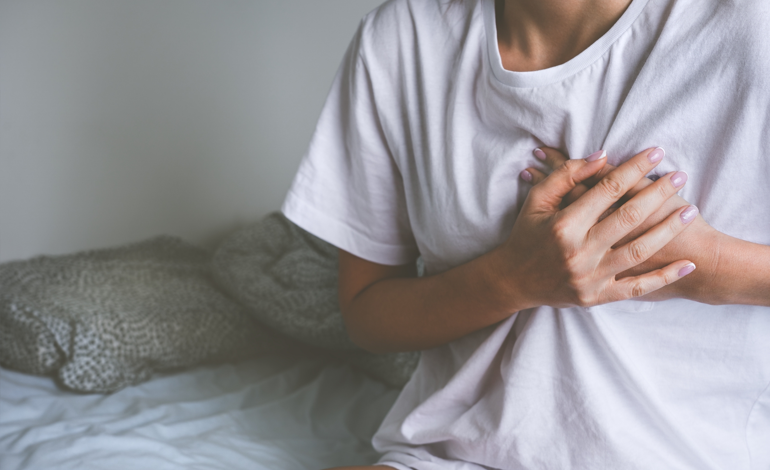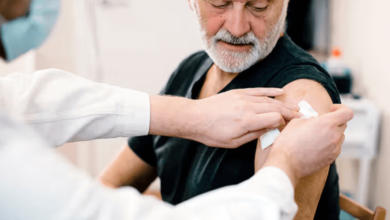Nighttime Palpitations: What Causes Them and How to Respond Safely

Waking up suddenly to a racing or pounding heartbeat can be alarming especially when it happens in the quiet of the night. In the official report pafikutaikab.org it is stated that these sensations, known as heart palpitations, are common and often harmless, but they can also signal underlying health issues if they occur frequently.
Doctors say that understanding the causes and knowing how to respond calmly are key to keeping your heart and mind at ease.
What Are Heart Palpitations?
Heart palpitations are sensations where your heartbeat feels fast, fluttering, or irregular. You might feel them in your chest, throat, or neck.
According to Dr. Rina Mulya, a cardiologist at Siloam Hospitals Jakarta, palpitations themselves are not a disease but a symptom. “They can result from many factors some physical, some emotional,” she said.
In most cases, palpitations last only a few seconds to minutes and resolve on their own.
See also: Improve Home Value with a Smooth, Clean Entry
Common Causes of Nighttime Palpitations
While palpitations can strike anytime, they often become more noticeable at night because your body is at rest and distractions are minimal. Several factors can trigger or worsen them:
- Stress and Anxiety – Emotional tension and panic attacks can release adrenaline, speeding up your heart rate.
- Caffeine or Alcohol – Drinking coffee, tea, or energy drinks in the evening can overstimulate the heart.
- Dehydration or Electrolyte Imbalance – Low levels of potassium or magnesium can affect heart rhythm.
- Sleep Disorders – Conditions like sleep apnea can cause oxygen dips, leading to nighttime palpitations.
- Hormonal Changes – Women going through menopause or menstrual cycles may experience irregular heartbeats.
- Medical Conditions – Thyroid disorders, anemia, or arrhythmias can also cause palpitations during rest.
First Aid: What to Do When It Happens
If you suddenly experience a pounding heartbeat at night, doctors recommend staying calm — panic can make the symptoms worse. Here are some steps you can take safely at home:
- Sit or lie down and focus on breathing. Take slow, deep breaths to activate the body’s relaxation response.
- Splash cool water on your face. This can stimulate the vagus nerve, which helps slow the heart rate.
- Avoid sudden movements or standing up quickly. Give your body time to adjust.
- Sip water. Hydration helps regulate heart rhythm.
- Check your environment. Turn off bright lights or screens and avoid caffeine before bedtime.
If the palpitations last longer than 20 minutes, are accompanied by chest pain, dizziness, or shortness of breath, seek medical attention immediately — these could be signs of a more serious condition.
When to See a Doctor
Occasional palpitations are usually harmless, but frequent or severe episodes warrant evaluation. A doctor may recommend an electrocardiogram (ECG), Holter monitoring, or blood tests to identify possible triggers.
“Persistent nighttime palpitations can be linked to arrhythmia or thyroid issues,” said Dr. Rina. “The earlier it’s checked, the better the outcome.”
Preventing Nighttime Palpitations
To reduce the likelihood of future episodes:
- Limit caffeine, nicotine, and alcohol, especially in the evening.
- Practice relaxation techniques such as meditation or deep breathing before bed.
- Maintain regular sleep and exercise schedules.
- Eat balanced meals and stay hydrated.
The Bottom Line
Nighttime palpitations can be unsettling but are often temporary and manageable. Listening to your body, managing stress, and maintaining heart-healthy habits are the best ways to keep your heartbeat steady — day and night.
As Dr. Rina concludes, “Most palpitations are your body’s way of saying slow down, breathe, and take care of yourself.”
Source: https://pafikutaikab.org/





